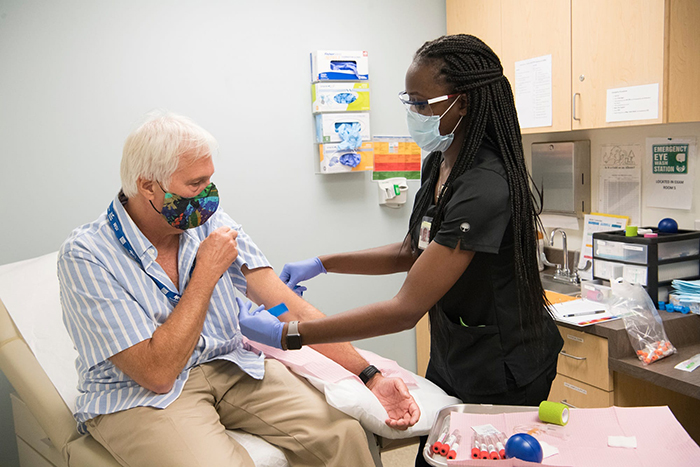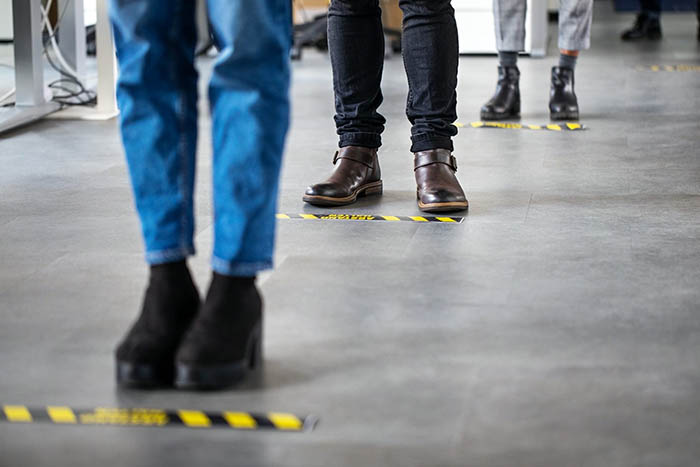The COVID-19 (2019 novel coronavirus) pandemic is a threat like none that we have ever faced.
At Emory, we are partnering with our patients to be a part of the solution. We are committed to providing the highest quality cutting-edge care to all patients within our health system while keeping our employees and patients safe. As an academic health system, we are also leading the way through clinical trials, partnering with our patients to evaluate promising emerging therapies to prevent and treat COVID.
COVID-19 came suddenly. In the beginning, there were no treatments available. Researchers and doctors at Emory and other academic institutions rapidly developed clinical trials to test potential therapies. We were one of the leading sites for the government-funded trials that helped establish remdesivir as a valuable treatment and we helped demonstrate the effectiveness of one of the promising vaccines that appears highly effective.
Our tools to treat COVID-19 continue to grow as clinical trials help us identify what treatments work and what treatments do not. Many of our patients may not be familiar with clinical trials.
We think that four key features of clinical trials are important for our patients to understand.
Clinical Trials Use the Power of Science to Drive Treatment
All trials are different, but the basic idea is to give some patients a new treatment and to give other, similar patients a different treatment. Usually, people who are not treated with the new therapy receive a placebo (saltwater or a sugar pill), so nobody knows who got what. When we do clinical trials this way, we can provide clear answers about what works and what doesn’t.
If we don’t have this evidence, we can’t really know how best to treat people. We risk giving care that is not effective or not safe for our patients. Clinical trials use proven scientific tools to make sure we arm our doctors and patients with the best evidence possible to care for people with this disease.





